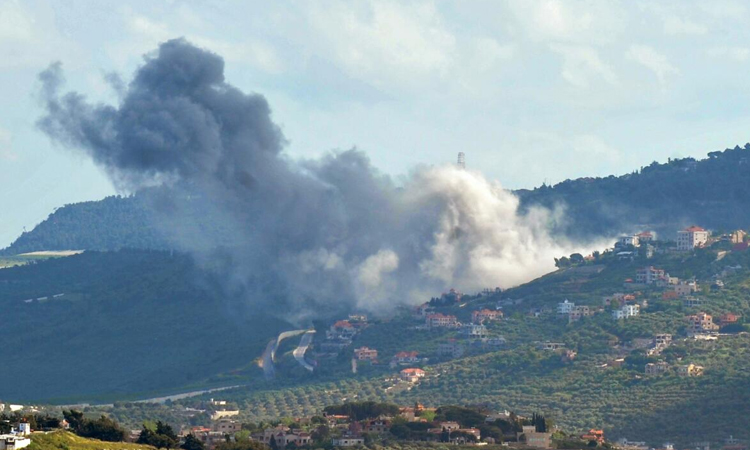News Flash
News Flash

BEIRUT, Lebanon, March 27, 2025 (BSS/AFP) - Lebanon's health ministry said an Israeli strike Thursday in south Lebanon killed three people, as Israel said it struck Hezbollah operatives and after official media reported one dead in a separate overnight raid.
The strikes were the latest in a series of deadly attacks in south Lebanon despite a November ceasefire deal between Israel and Iran-backed militant group Hezbollah after more than a year of hostilities including two months of open war.
An "Israeli enemy strike on a car in Yohmor al-Shaqeef led to the death of three people", said a health ministry statement reported by the National News Agency.
The NNA said an "enemy drone" targeted a vehicle near the town, in a strike that came at the same time as artillery shelling.
The Israeli military said in a statement that "several Hezbollah terrorists were identified transferring weapons in the area of Yohmor in southern Lebanon", adding that the army "struck the terrorists".
The NNA earlier Thursday reported that "one person was killed and another wounded in the Israeli drone targeting... of a car in the town Maaroub", elsewhere in south Lebanon.
Israel has continued to carry out raids in Lebanon since the November 27 ceasefire, striking what it says are Hezbollah military targets that violated the agreement.
Earlier this month, the health ministry said an Israeli strike killed two people in the Yohmor area, as the Israeli military said it struck two Hezbollah operatives.
Last weekend saw the most intense escalation since the truce, with Israeli strikes on south Lebanon killing eight people.
Israel said those raids were in response to rocket fire, the first to hit its territory since the ceasefire.
No party has claimed responsibility for the rocket fire, which a military source said originated north of the Litani River, between the villages of Kfar Tebnit and Arnoun, near the zone covered by the ceasefire deal.
Hezbollah, heavily weakened by the war, denied involvement.
Under the ceasefire, Hezbollah was to pull its forces north of the Litani River, about 30 kilometres from the Israeli border, and dismantle any remaining military infrastructure in the south.
Israel was to withdraw its forces across the UN-demarcated Blue Line, the de facto border, but still holds five positions in south Lebanon that it deems "strategic".
Hezbollah chief Naim Qassem said Wednesday: "We will not accept the continued (Israeli) occupation".
"There is no room for normalisation or surrender in Lebanon," he said in a televised address.